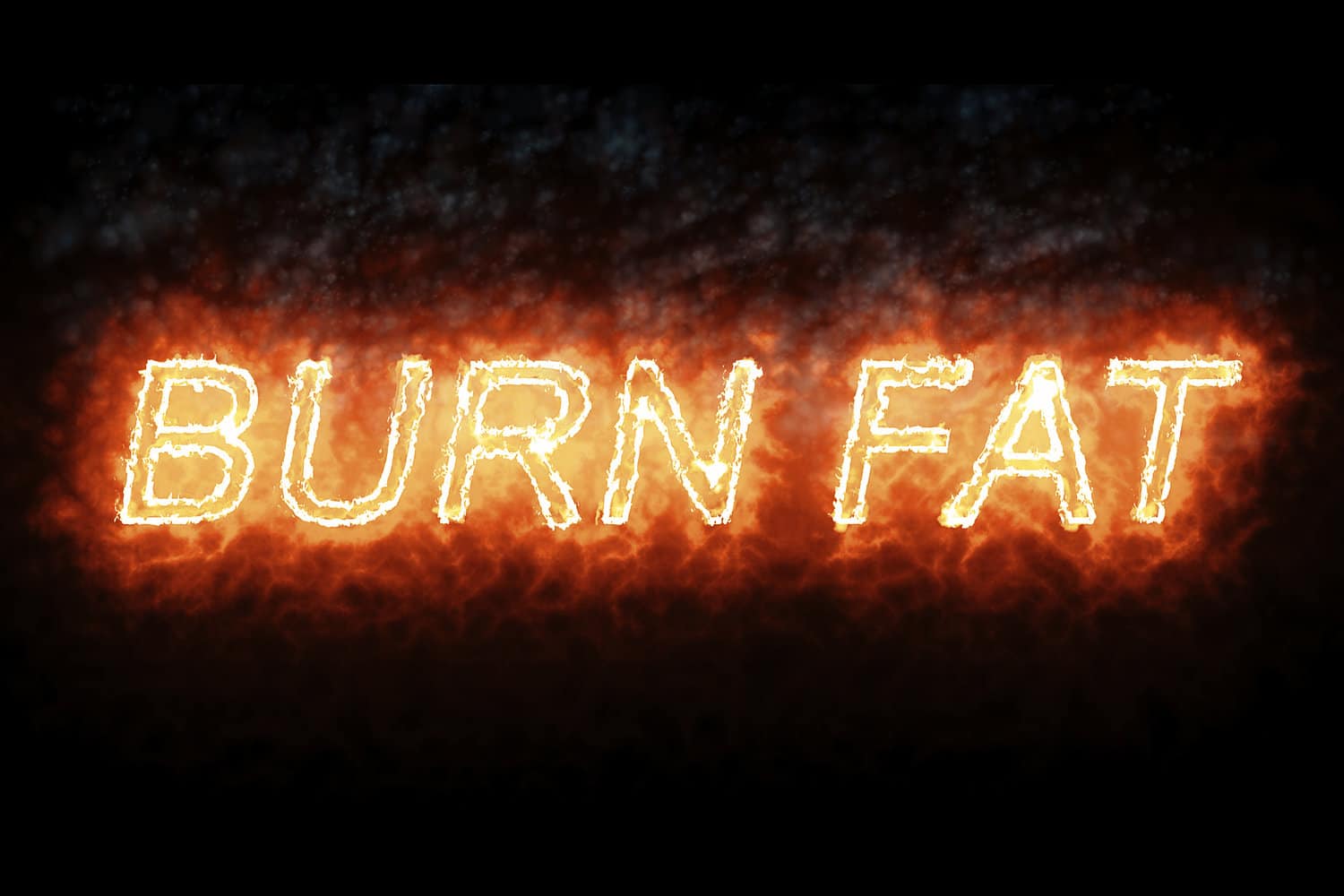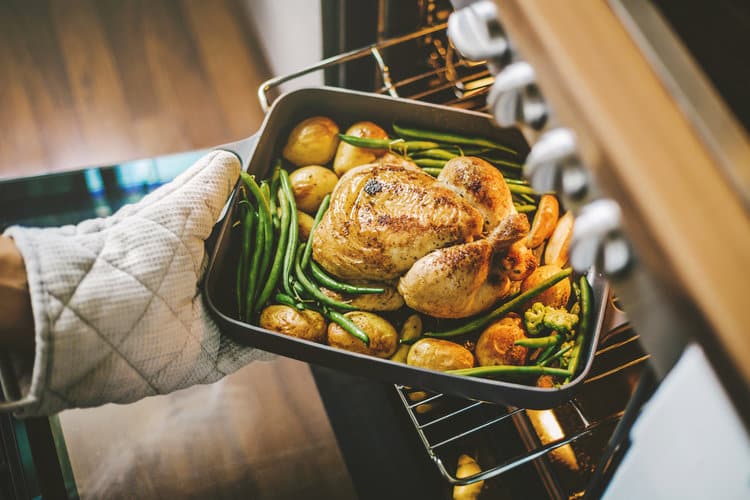Fat-burning really should be everyone’s goal in life!
Okay, there may be a few exceptions.
But for most people the ideal situation for health involves getting large swaths of time during the day and night where you are burning mostly fat for fuel.
Even if you don’t want to lose any fat tissue, you should want to be an efficient fat-burner.
And if you do want to lose fat tissue, then you definitely want to optimize fat-burning.
I work with quite a few people who seem to have had their fat burning switch turned OFF!
This can be very frustrating when you are doing a lot of good eating and you are very active but the scale doesn’t seem to budge.
In most cases this is probably due in large part to the hormone of discussion here. And that hormone is insulin.
Insulin is necessary for life. People with type 1 diabetes, an autoimmune disease where the pancreas does not produce enough insulin, tend to be thin. For those that go undiagnosed in childhood too long, they can even fail to grow to their height potential. Extremely low levels of insulin make you small and thin.
On the flip side, high levels of insulin will make you gain weight and grow big. This is because insulin is a growth hormone and it shuts down fat burning when it is present in significant levels in the blood.
This is the natural order of things in the body. You don’t really want to be burning stored fat for fuel after a meal because the meal has provided you with good nutrition to use for energy.
However, some people have chronically elevated levels of insulin circulating in their blood. This usually comes after years of mildly elevated blood sugar.
And when this happens your cells become resistant to accepting insulin and therefore the insulin levels do not lower enough.

The natural rhythm is that insulin goes down at night. And this is supposed to be prime-time fat-burning. But if your cells are even mildly insulin-resistant, you will not be the fat-burning machine you were meant to be.
To make matters worse, most people don’t even know this is happening to them. And doctors do not routinely test for it.
If you are having trouble losing weight, and it seems that no matter what you do, you can’t seem to move the scale, I strongly urge you to investigate this.
Ask your doctor to write a prescription for fasting insulin and go in for the lab work first thing in the morning before you have eaten (and make sure you drink plenty of water the night before and that morning).
You can also ask the doctor to add hemoglobin a1c and fructosamine to the lab work. These are indicators of how much sugar is circulating in your blood over longer periods of time.
If you look at all of those numbers together this may give you a clue about whether or not insulin resistance is an issue for you or not.
How do you fix this?
This issue will not be fixed overnight. But there are 3 angles you should be addressing this from and I would recommend doing so very aggressively if you have been struggling to lose body fat for a long time.
- Strength Training
- Nutritious, Whole Foods Diet
- Fasting or Time-Restricted Eating
*Please always consult with your doctor before starting any new regime with food or exercise.
Strength Training
The more you use your muscles, the more sensitive your cells will become to insulin.(1) And for those with elevated blood sugar, there is evidence that your muscle will start to suck up glucose when you are exercising, even without the help of insulin.(2)

When you are strength training you are requiring more concentrated work from the muscles, which means they need more sugar.
Essentially during strength training your muscles are demanding sugar and insulin like crazy. This effect is much stronger with strength training than aerobic type activity (aka “cardio). It has even been shown that strength training and NOT cardio reduces the risk for type 2 diabetes in women by 30%. (3)
You can do strength training without using weights if you engage in functional type training using your body weight and cool tools like the TRX. As you build your strength you can move to using some weights if you like.
The whole goal here is to grow muscle and get lean so that you can lower insulin, use up blood sugar, and allow your body to burn fat for fuel as much as possible.
If you are strength-training 4-5 times/week that is going to overall lower your insulin and allow you to become a fat-burner at any age!
If you are working out and not seeing results it probably means you are doing too much of the same thing and you probably need to switch it up. Your body is on to you!
I do always suggest working with a personal trainer to see real progress.
Nutritious, Whole Foods Diet
There is a lot of controversy out there around what is the best diet for increasing insulin sensitivity. Some say low-carb is the way and others say a low-fat, plant-based food is ideal.
Who is right?
It’s hard to say because there is research and decent arguments on both sides.
I suggest first of all listening carefully to your body and observing the effects of any new way of eating.
In the past have you felt great and leaned up on a low-carb diet? Maybe that’s the course to pursue again?
Or have you done really well on a Mediterranean diet in the past? Well then, try that out.
There are just 3 basic rules to follow.
It doesn’t matter what eating style you choose, if you follow these 3 rules you will at least be approaching it from a nutritious perspective.
- Eat whole foods as much as you can
- Include enough protein, fat, and fiber at each meal and snack
- Avoid processed and refined grain and sugar products
Whole Foods

No matter if you are eating a Keto style diet or a vegan diet, the core of your diet should be whole foods. Whole foods are not only nutritionally superior to processed foods, they are more delicious. That’s a win-win for you.
Yes, processed foods are more convenient and sometimes even cheaper. But if you have been struggling to lose weight, you’re going to have to go the extra mile.
Protein, Fat, & Fiber
The amount of protein, fat, and fiber you need is highly individual. There is a whole bunch of dietary dogma out there telling you that it’s their way or the highway.
Reject that and listen to your body.
Again, if you have done well in the past eating a particular way, follow that lead. You may react differently this time but you may not. You’ll never know unless you try.
And when you do try out new things, keep a journal or use a diet app (I like Cronometer).
Keep tabs on what you are eating and HOW YOU FEEL.
If you feel energized, happy and calm, it’s probably working!
If you feel tired and you are gaining weight rather than losing, well, something’s up!
Avoid Refined Foods
Listen, it’s not ALL about calories.
It’s also really really important to have high quality calories.
By avoiding refined carbs like bread, crackers, chips, granola bars, cookies, cereal, etc you will be giving your body the best chance to utilize insulin efficiently and effectively.
Focus on eating high-quality and unprocessed meat, fish, and eggs, nuts, seeds, tons of veggies (and then some more veggies), moderate amounts of fruit, legumes, and human-sized portions of whole grains (1/2 cup cooked is 1 serving).
This will make you happy because you won’t feel so restricted AND you will be getting a wide array of nutrients.
And the nutrients will be more slow to metabolize than say a pizza or a bowl of cereal so it will minimize the insulin response.
Also, avoid over-eating. Just eating a really large meal will spike insulin more than is desirable. Eat like a European!
Fasting/Time-Restricted Eating
This is very popular these days. And for good reason.
We do know that eating less helps us live longer lives.
We also know that fasting improves insulin sensitivity when you eat earlier in the day and stop eating early in the evening.(4)
This can be an easy, simple, cost-effective, and therefore sustainable way to increase your cellular sensitivity to insulin.
For the biggest impact, I recommend eating between the hours of 10 am to 6 pm, if possible.
Again, if you are really struggling, it’s time to pull out the big guns!
Just keep in mind that everyone is different and time-restricted eating and fasting are not for everyone. Always listen to your body!
Whatever you do, it should be difficult or painful for you. All of the suggestions I’ve made are doable, sustainable, and even enjoyable. So, even though you are pulling out the big guns, this should not be as hard work and you should not feel deprived.
Anyway, what’s the alternative?
To starve yourself and do tons of ineffective exercise only to see no results?
Or maybe to just give up?
I don’t want that for you!
Try out one of the suggestions I’ve made AT A TIME and see if you make progress.
Remember that it does take time to see a noticeable change because you are working on a whole-body level.
But it is worth it!
And you are worth it!
If you need more professional help or a deeper level of support for mindset, accountability, and the nuts and bolts of all these things, please check out my Optimal You Programs.
- Richter, EA & Hargreaves, M. Exercise, GLUT4, and Skeletal Muscle Glucose Uptake. Physiological Reviews, July 2013, Volume 93, Issue 3, 993-1017.
- Galante P1, Mosthaf L, Kellerer M, Berti L, Tippmer S, Bossenmaier B, Fujiwara T, Okuno A, Horikoshi H, Häring HU. Acute hyperglycemia provides an insulin-independent inducer for GLUT4 translocation in C2C12 myotubes and rat skeletal muscle. Diabetes. 1995 Jun;44(6):646-51. https://www.ncbi.nlm.nih.gov/pubmed/7789629?dopt=Abstract
- Shiroma EJ1, Cook NR, Manson JE, Moorthy MV, Buring JE, Rimm EB, Lee IM. Strength Training and the Risk of Type 2 Diabetes and Cardiovascular Disease. Med Sci Sports Exerc. 2017 Jan;49(1):40-46. https://www.ncbi.nlm.nih.gov/pubmed/27580152
- Elizabeth F.Sutton1RobbieBeyl1Kate S.Early2William T.Cefalu13EricRavussin1Courtney M.Peterson145. Early Time-Restricted Feeding Improves Insulin Sensitivity, Blood Pressure, and Oxidative Stress Even without Weight Loss in Men with Prediabetes. Cell Metabolism, Volume 27, Issue 6, 5 June 2018, Pages 1159-1160. https://www.sciencedirect.com/science/article/pii/S1550413118302535
